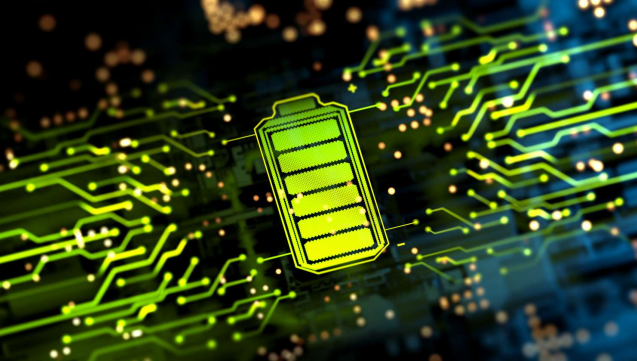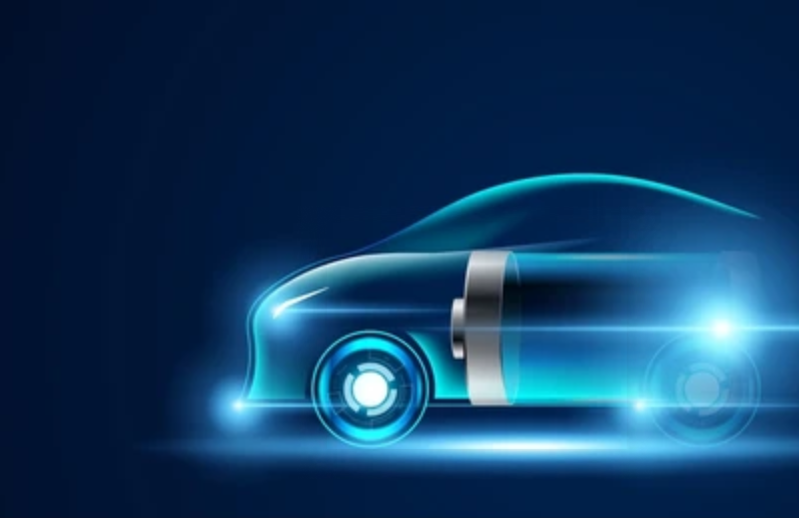Lithium-ion Battery: The Core Technology of Modern Energy Storage
Lithium-ion battery, as one of the core technologies in the field of modern energy storage, has been attracting attention since its birth with its excellent performance and wide application prospects. This article will deeply explore the basic principles, structural composition and unique advantages of lithium-ion batteries in energy storage, and reveal the secrets of this technological product to you.
1. Basic Principles
Li-ion battery is a secondary battery, that is, a rechargeable battery, and its working principle mainly depends on the movement of lithium ions between the positive electrode and the negative electrode. During the charging process, lithium ions are deintercalated from the positive electrode material and embedded into the negative electrode material through the electrolyte, making the negative electrode in a lithium-rich state; while during the discharging process, lithium ions are deintercalated from the negative electrode material and returned to the positive electrode through the electrolyte to complete a complete charging and discharging cycle. This process is commonly referred to as the “rocking chair battery” effect.

2. Structural Composition
The structure of Li-ion battery is relatively complex, but it mainly consists of the following main parts:
Positive electrode: The positive electrode is an important component of lithium-ion batteries, and usually uses lithium-containing oxides as active materials, such as lithium cobalt oxide (LixCoO2). The choice of positive electrode material directly affects the performance of the battery, including energy density, cycle life, etc.
Negative electrode: The negative electrode usually uses carbon materials such as graphite or petroleum coke as active materials. These materials have good lithium insertion properties and can receive lithium ions that migrate from the positive electrode during charging.
Electrolyte: The electrolyte is the channel for lithium ion migration in Li-ion batteries, usually a solution of organic solvents and lithium salts. The performance of the electrolyte directly affects the ionic conductivity and safety of the battery.
Diaphragm: The diaphragm is located between the positive and negative electrodes to prevent short circuits caused by direct contact between the two electrodes. The diaphragm also allows lithium ions to pass through to complete the charge and discharge process.
Battery case: The battery case is used to encapsulate all of the components inside the battery and protect the battery from the external environment. Common battery case materials include steel cases and aluminum cases.

3. Unique Advantages
The reason why lithium-ion batteries can occupy an important position in the field of energy storage is mainly due to the following unique advantages:
High energy density: Lithium-ion batteries have high energy density and can store a large amount of electrical energy in a small volume, which is particularly important for applications such as portable electronic devices and electric vehicles.
Long cycle life: Lithium-ion batteries have a long cycle life and can maintain a high level of performance after multiple charge and discharge cycles, reducing the cost of ownership.
No memory effect: Compared to early nickel-cadmium batteries and nickel-metal hydride batteries, lithium-ion batteries have the characteristics of no memory effect, that is, the battery capacity does not decrease due to partial discharge.
Low self-discharge rate: Lithium-ion batteries have a low self-discharge rate and can maintain a high power level when not used for a long time.
Environmentally friendly: Lithium-ion batteries do not contain harmful substances such as heavy metals and have a low impact on the environment. At the same time, with the advancement of recycling technology, the recycling rate of lithium-ion batteries is also increasing.
In summary, lithium-ion batteries have become one of the core technologies in the field of modern energy storage with excellent performance and wide application prospects. Through continuous technological innovation and process improvement, the performance of lithium-ion batteries will be further enhanced, providing more convenient and efficient energy solutions for people’s daily lives and industrial production.
-
 12v 100ah lithium battery has won the favor of many fields for its stability, durability and strong power. Whether it's outdoor adventures, power tools, or solar and wind power generation systems, it delivers superior performance and reliability. As an energy storage unit, it can provide long-lasting and stable power support for various equipment; as a power source, it can provide...اقرأ أكثر
12v 100ah lithium battery has won the favor of many fields for its stability, durability and strong power. Whether it's outdoor adventures, power tools, or solar and wind power generation systems, it delivers superior performance and reliability. As an energy storage unit, it can provide long-lasting and stable power support for various equipment; as a power source, it can provide...اقرأ أكثر -
 In today's fast-paced world, vehicles have become an essential part of our daily lives. Whether it's for commuting to work, running errands, or going on a road trip, we rely heavily on our vehicles to get us where we need to be. However, one of the most common problems vehicle owners face is a dead or weak battery. This can...اقرأ أكثر
In today's fast-paced world, vehicles have become an essential part of our daily lives. Whether it's for commuting to work, running errands, or going on a road trip, we rely heavily on our vehicles to get us where we need to be. However, one of the most common problems vehicle owners face is a dead or weak battery. This can...اقرأ أكثر -
 The rated capacity of a starter battery indicates the amount of energy that the battery can store and deliver to start a vehicle\'s engine. This capacity is typically measured in ampere-hours (Ah) and indicates the amount of current that the battery can provide over a specific period of time. When selecting a starter battery, it is important to choose...اقرأ أكثر
The rated capacity of a starter battery indicates the amount of energy that the battery can store and deliver to start a vehicle\'s engine. This capacity is typically measured in ampere-hours (Ah) and indicates the amount of current that the battery can provide over a specific period of time. When selecting a starter battery, it is important to choose...اقرأ أكثر -
 The increasing demand for power storage solutions is driving the development of various energy storage systems, including batteries. Among them, the LiFePO4 lithium battery stood out as a promising option due to its high energy density, long cycle life, and low environmental impact. In this article, we will explore the benefits and applications of the 12V 100Ah LiFePO4 lithium battery...اقرأ أكثر
The increasing demand for power storage solutions is driving the development of various energy storage systems, including batteries. Among them, the LiFePO4 lithium battery stood out as a promising option due to its high energy density, long cycle life, and low environmental impact. In this article, we will explore the benefits and applications of the 12V 100Ah LiFePO4 lithium battery...اقرأ أكثر -
 In recent years, the demand for electric vehicles has seen a dramatic increase. As we move towards a greener environment, the need for more efficient and sustainable energy sources has become an important issue. Lithium Iron Phosphate (LiFePO4) battery packs have emerged as a promising alternative to traditional lead-acid batteries. LiFePO4 battery packs are rechargeable lithium-ion batteries that use...اقرأ أكثر
In recent years, the demand for electric vehicles has seen a dramatic increase. As we move towards a greener environment, the need for more efficient and sustainable energy sources has become an important issue. Lithium Iron Phosphate (LiFePO4) battery packs have emerged as a promising alternative to traditional lead-acid batteries. LiFePO4 battery packs are rechargeable lithium-ion batteries that use...اقرأ أكثر -
 يعد امتلاك بطارية بداية تشغيل موثوقة في سيارتك أمرًا ضروريًا لضمان بدء تشغيل سيارتك بسلاسة وكفاءة في كل مرة. توفر بطارية بدء التشغيل الطاقة اللازمة لبدء تشغيل محرك سيارتك وإبقائه قيد التشغيل ، مما يجعلها عنصرًا مهمًا في الأداء العام لسيارتك. في هذه المقالة ، نلقي نظرة فاحصة على ما ...اقرأ أكثر
يعد امتلاك بطارية بداية تشغيل موثوقة في سيارتك أمرًا ضروريًا لضمان بدء تشغيل سيارتك بسلاسة وكفاءة في كل مرة. توفر بطارية بدء التشغيل الطاقة اللازمة لبدء تشغيل محرك سيارتك وإبقائه قيد التشغيل ، مما يجعلها عنصرًا مهمًا في الأداء العام لسيارتك. في هذه المقالة ، نلقي نظرة فاحصة على ما ...اقرأ أكثر -
 Today, as global climate change and environmental protection become increasingly important, the automotive industry is undergoing a profound transformation. In this transformation, automotive lithium batteries, as the core components of new energy vehicles, are leading the automotive industry into a greener, more environmentally friendly and sustainable future with their unique advantages. This article will provide you with an in-depth understanding...اقرأ أكثر
Today, as global climate change and environmental protection become increasingly important, the automotive industry is undergoing a profound transformation. In this transformation, automotive lithium batteries, as the core components of new energy vehicles, are leading the automotive industry into a greener, more environmentally friendly and sustainable future with their unique advantages. This article will provide you with an in-depth understanding...اقرأ أكثر

